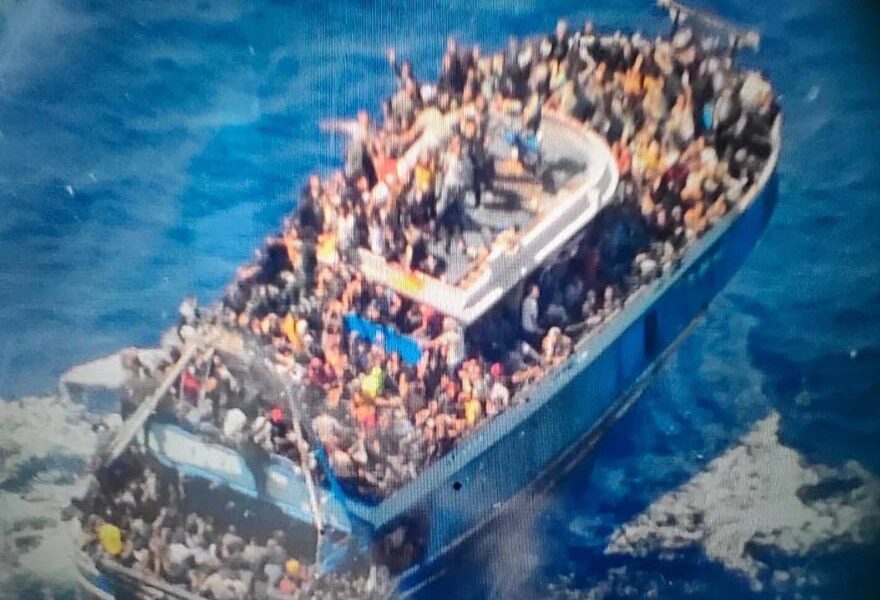Greece is currently grappling with one of its worst maritime disasters in recent years, leaving the nation in shock and prompting serious inquiries into the circumstances surrounding the drowning of potentially hundreds of migrants.
The incident unfolded as a fishing vessel capsized in international waters southwest of Greece, resulting in the loss of at least 78 lives. While 104 people were successfully rescued, concerns persist regarding the fate of hundreds of others, as witnesses claim that up to 750 individuals were aboard the ill-fated vessel. As details emerge, questions arise about the actions taken by the Greek coastguard, who were reportedly shadowing the boat as the tragedy unfolded.
On June 13, at approximately 0800 GMT, the Greek coastguard received an alert regarding the presence of the vessel approximately 47 nautical miles (87 km) southwest of Greece. Sadly, by 2300 GMT on the same day, the boat had capsized. The events that transpired during the intervening 15 hours remain murky, as conflicting accounts emerge from different sources. While a migrant charity claims that distress signals were sent from the vessel, Greek authorities assert that offers of assistance were repeatedly declined.
Insights from survivors and Greek police sources shed light on the perilous journey undertaken by the migrants. The aging fishing vessel departed from Tobruk, Libya, in the early hours of June 10, carrying around 30 survivors' accounts. Passengers paid a hefty sum of $4,500 each for passage to Italy. Bookings were made through social media platforms. The vessel, overcrowded from the start, left passengers with no alternative when they discovered the cramped conditions. Over the subsequent days at sea, the boat encountered several mechanical faults, temporarily remedied by a crew of 8-10 individuals. Progress was slow, and passengers faced threats and intimidation from traffickers if they voiced any concerns. The desire to reach Italy, with its bordering visa-free EU member states, outweighed the possibility of seeking refuge in Greece, surrounded by Balkan states adopting increasingly strict migration policies.
The distress call received by Alarm Phone, a trans-European advocacy group supporting rescue operations, revealed the urgency of the situation. The caller stated that survival was in doubt. Greek authorities were also in communication with the vessel.
However, during subsequent exchanges from 1330 to 1800 GMT, the individuals on board expressed their determination to sail to Italy, firmly rejecting any assistance from Greece. Aerial photographs captured by the Greek coastguard just hours before the tragedy exposed a vessel packed with desperate passengers, some reaching out their hands for help. Greek officials faced a difficult dilemma, as intervening without cooperation from the vessel's occupants risked destabilizing the boat further. Compliance with EU regulations, which assess distress based on various factors, further complicated the situation.
The lack of transparency from Greek authorities concerning the incident has raised concerns among human rights organizations. Amnesty International's migration researcher, Adriana Tidona, emphasized that the Greek government had specific responsibilities toward every passenger on the distressed vessel, which was clearly in distress. The lack of clarity surrounding Greece's actions and decision-making process has deepened anxieties and called into question the adherence to international obligations.
As the boat reported engine failure and came to a halt, a coastguard vessel closely monitoring the situation approached. Within approximately 25 minutes, witnesses observed the boat tilting precariously from right to left. In a matter of 10 to 15 minutes, the vessel vanished beneath the waves. The exact number of victims may be known.


